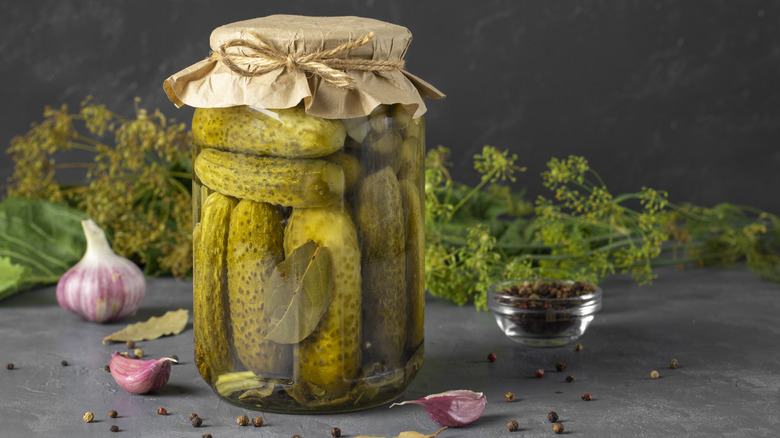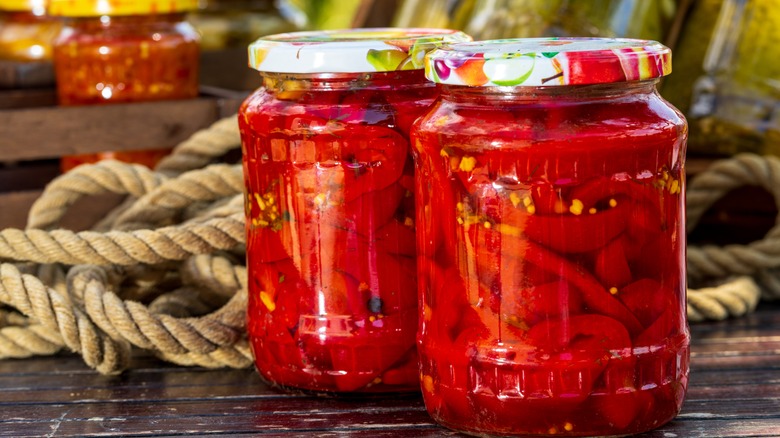Yes, It Actually Matters What Vinegar You Use To Pickle Veggies
There are several things to remember when pickling your favorite fruits or vegetables (yes, pickled fruit is a thing), but one key variable rarely discussed is what type of vinegar you should use to get the job done. Before you puncture holes in your veggies to ensure your homemade pickles are as flavorful as can be, it's important to remember that different kinds of vinegar offer their own unique qualities to veggies, some better and some worse.
For Angelo Sosa, executive chef at Kembara and Tía Carmen in Phoenix, Arizona, as well as Carmocha and another location of Tía Carmen in Indian Wells, California, the ideal vinegar will complement the ingredients being pickled rather than overwhelming them. "I prefer to use Japanese rice vinegar," Sosa noted. "It has a clean, pure, and smooth finish with a subtle sweetness essential to balance the acidity."
Besides that hint of sweetness Sosa alluded to, rice vinegar (aka rice wine vinegar) impacts the flavor less harshly due to its relatively low acetic acid content. "Typically acetic acid is around 5%," Sosa explained, "All vinegar acid content varies from 4-7% depending on the variety. Rice vinegar has 4% whereas wine vinegars typically range from 5-7%." Because any acid level under 5% isn't considered shelf-safe, rice vinegar should be avoided when using the canning method of pickling. It's best reserved for making pickled vegetables which you'll keep in the refrigerator instead.
The one vinegar you shouldn't use to pickle vegetables
Rice vinegar isn't the only ideal type of vinegar to use for pickling (many would take distilled white wine or apple cider vinegar over it any day), but it's certainly among the better choices for the task, especially compared to balsamic vinegar. "I would not usually use balsamic vinegar for pickling," Sosa warned. "Its strong flavor will dominate the flavor of the ingredients being pickled."
Another factor worth taking into account is that some kinds of vinegar can cause discoloration to the vegetables they're pickling. This may not be reason enough to avoid using red wine vinegar (a great choice for pickling something like cabbage), but it's another disqualifying factor for balsamic vinegar. This is, once again, a place where rice vinegar shines when it comes to pickling. As Sosa put it: "Japanese rice vinegar will suit best to preserve color retention and flavor."

